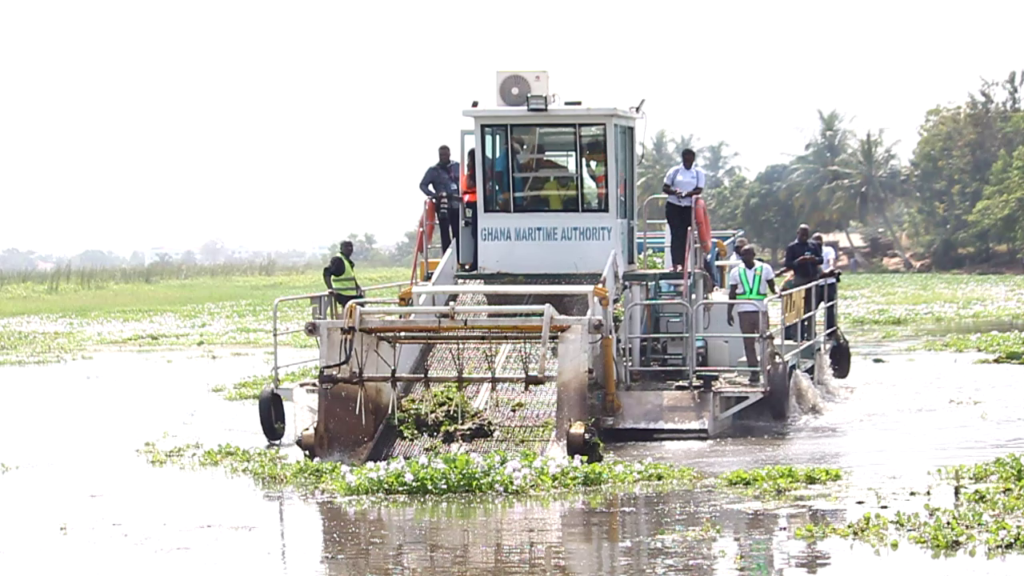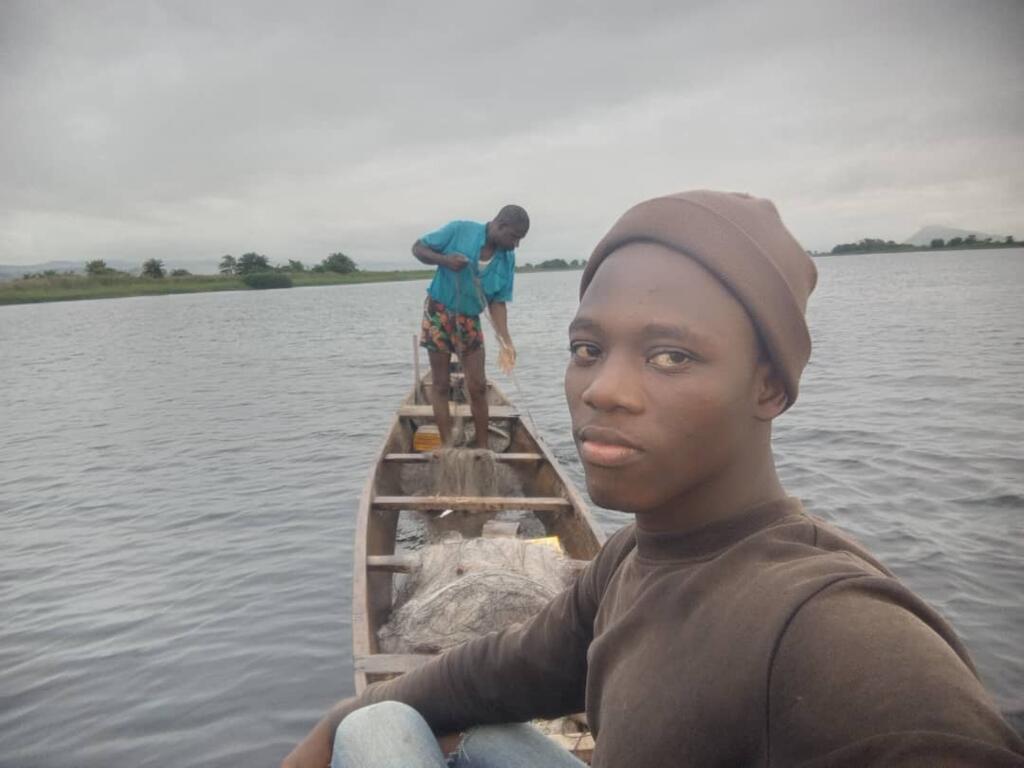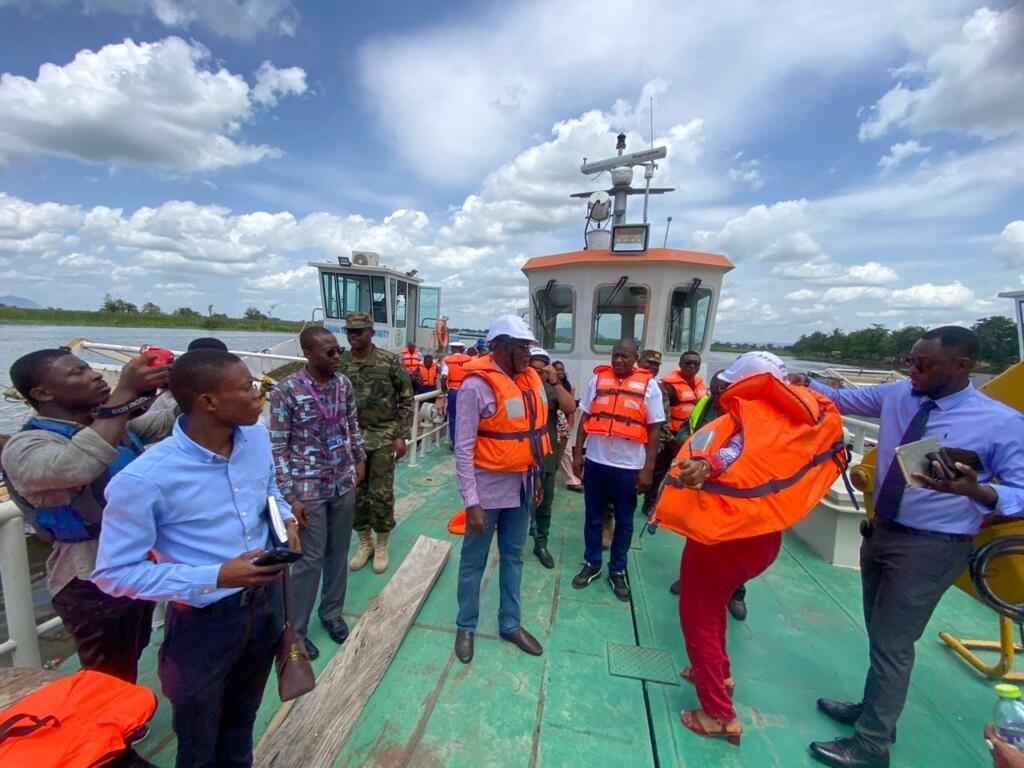
An aggressive proliferation of water hyacinth in southern Ghana's Volta Lake is crippling fishing activities, depleting fish stocks and destroying local livelihoods.
A free-floating aquatic plant native to the Amazon River basin in South America, water hyacinth is renowned for its rapid growth and attractive lavender-blue flowers, often used to decorate garden ponds.
However, it is also regarded as one of the world’s most invasive species.
First reported in Ghana in 1984, water hyacinth found its way into the River Tano in the Western Region. From there, it spread to other water bodies – including Lake Volta, a vast reservoir behind a hydroelectric dam that generates much of the country's power.
Forming a dense mat over the surface of the water, it depletes water bodies of oxygen, killing fish and other wildlife.
Ghana's Environmental Protection Agency (EPA) has raised concerns over the major environmental and economic threat posed by the rapid spread of the plant.
Jewel Kudjawu, director of the EPA's Intersectoral Network Department, warned that the weed's uncontrolled growth has dire consequences for aquatic life, fishing communities and hydropower production.
"Water hyacinth is not just a nuisance plant; it is an ecological threat. If we don’t act quickly, it will destroy fish habitats, block water transport routes and affect livelihoods," she told RFI.
How Europe’s appetite for farmed fish is gutting Gambia's coastal villages
Fishing boats blocked
Thousands of fisherfolk living along the lake in Ghana's Eastern and Volta regions are seeing their livelihoods gradually suffocate.
For lakeside communities such as Kpong, Atimpoku, Senchi, Akuse and Akrade, fishing is the backbone of the local economy.
As water hyacinth spreads, nets are entangled, boat routes blocked and families who have relied on the lake for generations are facing dwindling incomes.

For Emmanuel Tetteh, a 52-year-old fisherman in Kpong, the impact is devastating.
"These weeds started small here some years ago, but now they are all over," he says. "I can’t access parts of the lake and my income has dropped drastically. I used to make 3,000 cedis [€238] a month, but now even 1,000 [€79] is not easy."
Tetteh says fishing is how he takes care of his family of five.
"Some of the fisherfolk have left the community to other parts of the country to continue their fishing."
Far-reaching impacts
Meanwhile, the Kpong Hydroelectric Power Plant faces monthly losses of the equivalent of around €790,000 caused by aquatic weeds obstructing operations.
Akim Tijani, in charge of technical services at the Volta River Authority, says water hyacinth impedes water flow into turbines, thus reducing power generation.
"Beyond energy losses, the weeds obstruct canoe transport, reduce fish stocks and hurt livelihoods in fishing and ecotourism," he explains.
Boat operator Charles Mawuko said the water hyacinth gets tangled up in the propeller of his outboard motor and takes time to clear.
Pacific algae invade Algerian beaches, pushing humans and fish away
Floating mowers
To combat the infestation, the Ghana Maritime Authority has deployed three aquatic weed harvester boats – two at Kpong and one at Ada, on the Atlantic coast.
"The overall result we are seeing is weeds being cleared in tonnes, allowing the generation of power," said Kamal-Deen Ali, the authority's director-general. "Without this, it could cripple the nation."

As well as making way for fishing boats, the clearing measures also support tourism, he says. "If someone visits and the water is choked with weeds, it ruins the attraction. Finally, it opens safe passage for canoes and other watercraft," he explains.
The EPA has stepped up its awareness campaign on water hyacinth in communities along Lake Volta. As well as monitoring affected areas, it is working with partners to develop long-term strategies to curb the menace.
"We urge community leaders, local assemblies, and relevant state agencies to collaborate on measures to control the spread of the plant," the agency said. "Communities must be part of the solution. With the right education and stakeholder involvement, we can turn this challenge into an opportunity."







